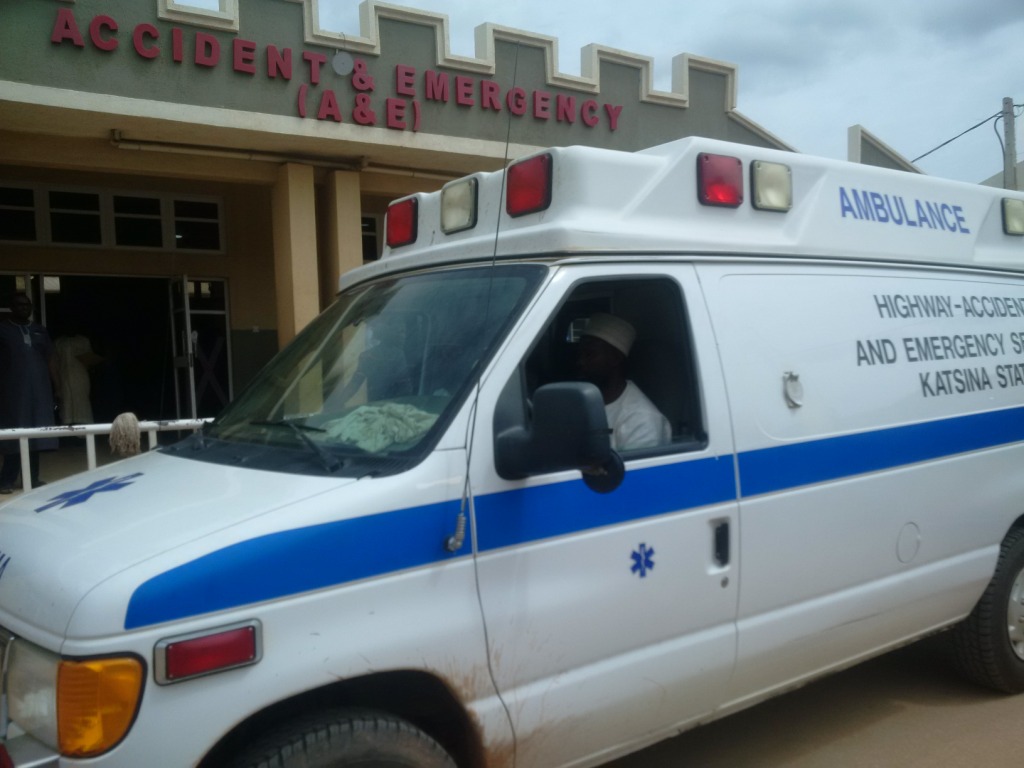How Emergency Ambulance Services crashed child, maternal mortality in Sokoto
Maternal and child mortality cases are on the decline in Sokoto State following the deployment of ambulances to rural areas under the government’s Emergency Ambulance Services. DailyTrust reports that the government has distributed 296 ambulances to 244 wards to ease transportation of patients to Primary Healthcare Centres and other referral hospitals across the state. COVID-19 […]

FILE PHOTO: An ambulance
Maternal and child mortality cases are on the decline in Sokoto State following the deployment of ambulances to rural areas under the government’s Emergency Ambulance Services.
DailyTrust reports that the government has distributed 296 ambulances to 244 wards to ease transportation of patients to Primary Healthcare Centres and other referral hospitals across the state.
- COVID-19 patient ‘conveyed in ambulance’ to write WASSCE in Gombe
- BUA foundation donates five ambulances as Gov. Emmanuel vows end to COVID-19
Most of the ambulances were purchased during the administration of Aliyu Magatakarda Wamakko.
According to the District Head of Gagi, Alhaji Sani Umar, the emergency ambulance service was saving the lives of pregnant women and the seriously ill in the rural areas.
He said before they were provided with the ambulances, hospital delivery was between 10 and 20 percent in his domain but it has increased to between 50 and 70 percent since the programme was introduced.
“Some deliveries come with complications beyond the capacity of staff of the PHCs and require immediate referral.
“Secondly there is need during antenatal care for pregnancy ultrasound scanning which cannot be found in most rural communities.
“Such women are listed down, conveyed in the ambulances to the city for scanning and brought back.
“The ambulances also help in changing the mind sets of the rural populace in terms of health care services.
“The men now support women to go to health facilities before, during and after delivery because of the free ride.
“So the ambulances are very significant in saving the lives of pregnant women in rural communities,” he said
The district head, also said the service has enhanced the enrolment of women in ante-natal care and hospital delivery as well as for other post-natal checks in his domain.
Umar stressed the need for the state government to continue to strengthen the capacity of members of the society to take ownership of these facilities, saying in his area, people contributed money to fuel their ambulance and service it.
A health worker at Arkilla Primary Healthcare Centre, who sought anonymity, underscored the importance of the programme, saying however that his centre did not get an ambulance because of its proximity to the city.
“We have two primary health centres, one at Kalambaina and the other at Arkilla.
“So the ambulance was given to Kalambaina centre, probably because of our distance from the city, but we still need one,” he said.
A resident of the area, said the emergency ambulance service was also saving the lives of people involved in road accidents, especially along Tureta-Sokoto road.
“Some of the ambulances deployed to the area are used in evacuating accident victims to Sokoto for emergency treatment,” he said
Daily Trust, however, observed that some of the ambulances have now been abandoned due to lack of maintenance.
The State Director, Medical Services, Dr. Shu’aibu Gobir, noted that maternal and new born mortality rate in the state has reduced by 50 percent since the deployment of the ambulances.
He added that the service has also significantly reduced the number of deaths as a result of the delay in getting to hospital.
“We have trained staff to handle patients in the ambulances and give them the basic life support needed while on transit.
“We provided closed user group telephone lines connecting hospitals and essential health personnel in the state.
“If there is an emergency case, one hospital will easily communicate to the referral centre for them to make the necessary arrangement before the arrival of the patient.
“The vehicles convey accident victims to the nearest health centre or trauma centre where they get free treatment, especially in the first 24 hours, while pregnant women who need special services are transported from PHC to places where they get advanced service in the state.
Dr. Gobir called on the people to avail themselves with these services and take ownership of such facilities in order to ensure their regular maintenance.
